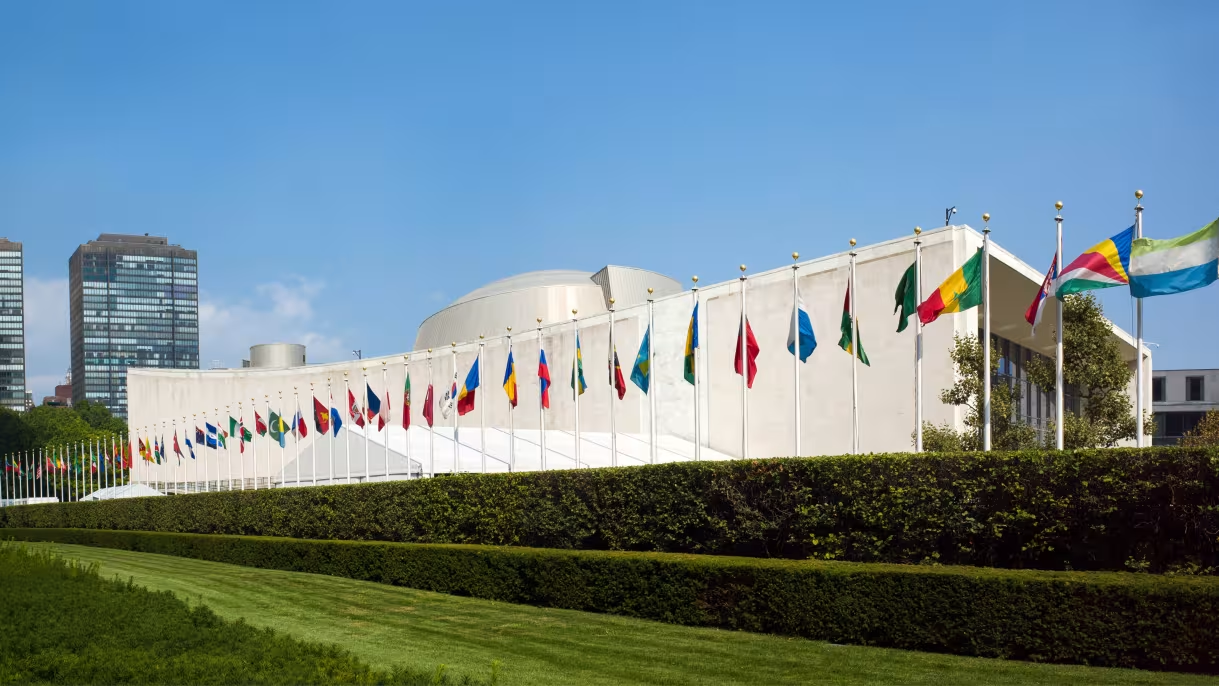

U.N. Approves SGS-Backed Global Study of Nuclear War
The United Nations will commission an international scientific study on the effects of nuclear war for the first time in more than three decades, thanks in part to advocacy efforts by the Program on Science and Global Security (SGS) at the Princeton School of Public and International Affairs. The idea for a comprehensive 21st century assessment of the impacts of the use of nuclear weapons was first developed in 2015 at SGS, which has been pushing for the U.N. to take it up ever since.
The U.N. General Assembly last mandated a study of nuclear war as part of a resolution adopted in 1985. The study was completed and released in 1988.
“The world is very different today; the global population is 50 percent larger today than in the 1980s, and we see global society, economy, environment, and ecology are far more interdependent and vulnerable to shocks,” said Zia Mian, co-director of SGS. Mian noted that, with advances in science and the development of new capabilities for modeling complex systems, scientists are better able to understand how people and the planet would be impacted by the use of nuclear weapons—not just in the immediate aftermath but for decades to follow.
The resolution was introduced by a coalition of 48 countries, led by Ireland and New Zealand. It passed on Dec. 24 with an overwhelming majority of the U.N. General Assembly voting in favor: 136 countries voted in favor and only 3 countries—France, Russia, and the United Kingdom, all nuclear-armed states—voted against it, while 29 abstained. As for the other nuclear-armed states, China voted in favor of the study while Israel, India, Pakistan and North Korea officially abstained. The United States did not vote.
The urgency around conducting such a study has increased in recent years as nuclear arsenals in all nine nuclear-armed countries are being modernized, Mian said. Arms control treaties limiting nuclear arsenals have collapsed, and there is a new nuclear arms race with some nations increasing stockpiles and others preparing to build more weapons. Nuclear threats also are being made more frequently.
The resolution authorizing the study begins by stating that the General Assembly is “alarmed at the renewed prospect of nuclear war, and gravely concerned by the catastrophic humanitarian and environmental consequences that would result from it.”
The resolution requires the U.N. Secretary-General to appoint an independent 21-member Scientific Panel on the Effects of Nuclear War to examine “the physical effects and societal consequences of a nuclear war on a local, regional and planetary scale.”
The study will span “climatic, environmental and radiological effects, and their impacts on public health, global socio-economic systems, agriculture and ecosystems, in the days-weeks-decades following nuclear war.” The panel also will identify areas requiring further research.
SGS has been sounding the alarm for years on the need to study the effects of nuclear war. Researchers at the program have demonstrated that the impact of nuclear weapons use is farther reaching than was previously thought. It is imperative that the public and policymakers—including in the nuclear-armed states—know of the catastrophic large-scale long-term human, environmental, ecological, economic, and societal impacts of using nuclear weapons, said Mian.
In 2020, SGS successfully convinced the U.S. Congress to mandate a study on the environmental effects of nuclear war, and that is currently underway by The National Academies of Sciences.
A separate 2023 study by the National Academies concluded that U.S. Defense Department models of nuclear war are “focused on prompt effects and military objectives.” This results in a “partial accounting of the consequences leading to a limited understanding of the breadth of the outcomes.” It called for improved understanding of the physical effects of nuclear weapons and climatic effects, as well as the “psychological, societal, and political consequences of nuclear weapons use.”
A global study will have even more impact, Mian noted.
“It would be especially important for people and countries that have not done nuclear war studies of their own, but would be innocent bystanders in any nuclear war,” he said. “It also would help governments and people in nuclear-armed states better understand the nature, scale, and severity of the many catastrophic consequences of nuclear war, not just for adversaries but for everyone, including themselves. Ideally, the findings could build a basis for action toward the total elimination of nuclear weapons worldwide and secure a safer future for people and our planet.”

